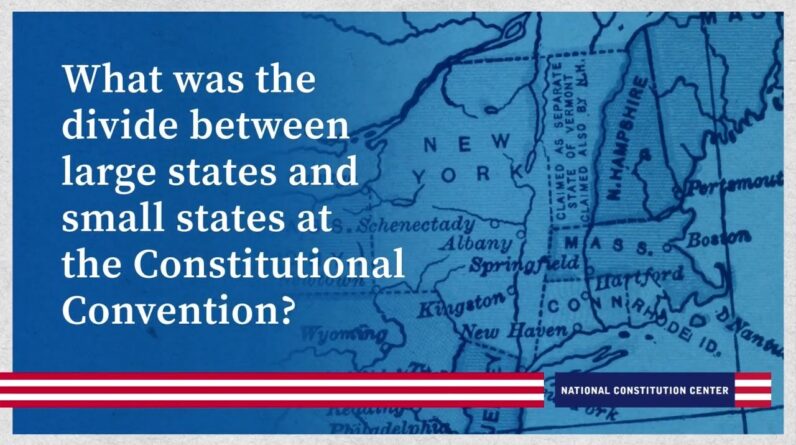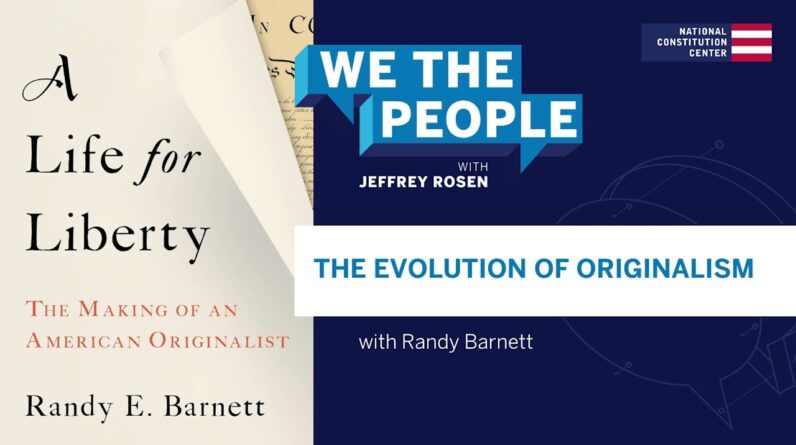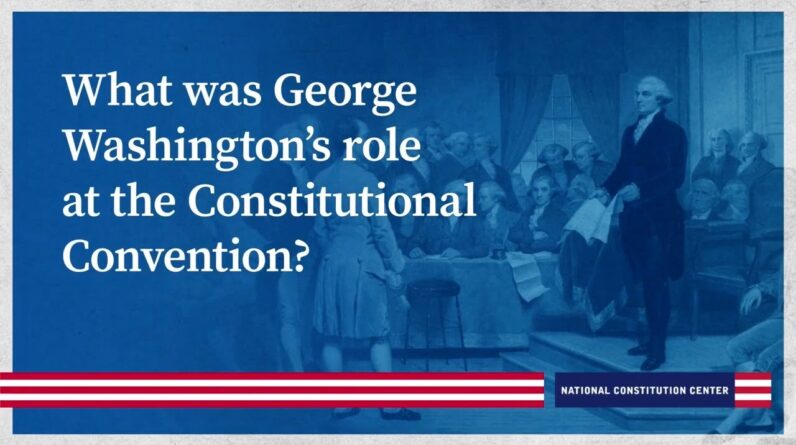
Your Constitutional Rights
As we all know, the United States of America was founded upon the principles of freedom, justice, and equality. These values are enshrined in our Constitution – a document that grants us an array of rights and protections from any form of governmental overreach. In short, the Constitution gives us a voice in our own democracy.
The document is more than just words on paper; it’s a living document that provides citizens with the ability to defend themselves against tyranny and injustice. It’s important for us to understand our Constitutional rights and how they can be used to protect us from harm.
In this article, I’ll take you through a comprehensive exploration of your Constitutional rights and explain how they can be used to maintain your safety and security. I’ll also provide insight into how these rights have been interpreted over time by the Supreme Court. Through this analysis, you’ll gain a better understanding of why these rights are so important and how they should be utilized moving forward.

Overview Of The Constitution
The United States Constitution is the foundation of our nation’s laws. It establishes the framework for governing our country, and it outlines the fundamental rights and liberties of citizens. Constitutional law is the study of how this document has been interpreted over time and how it applies to modern society.
The Constitution was written in 1787 by a group of men from various states who sought to create a central government that would protect citizens’ rights while allowing for state autonomy. This document laid out the principles upon which our government operates today, including a system of checks and balances between three branches: executive, legislative, and judicial.
Constitutional interpretation has evolved over centuries as Supreme Court decisions have shaped our understanding of constitutional rights and principles. Today, Americans are guaranteed certain freedoms thanks to these interpretations, such as freedom of speech, religion, assembly, press, privacy, and protection from unreasonable search or seizure. These constitutional rights help us maintain a safe and just society in which everyone is treated equally under the law.
Right To Free Speech
The cornerstone of the Constitution is the right to free speech. As citizens, our ability to express ourselves freely and without fear of retribution is a hallmark of the American experience. It is for this reason that the First Amendment grants us protection from government infringement on our right to free speech.
The First Amendment guarantees us our constitutional free speech rights including freedom of expression, freedom of assembly, and freedom of association. This means that we have a right to express ourselves in various forms such as protest, protest signs, chants, leaflets, pamphlets and more. We also have the right to assemble peacefully with others who share our views and form associations such as advocacy groups or other organizations.
The Constitution offers us protection against any interference by the government with regard to our free speech rights. The Supreme Court has consistently held that the government cannot discriminate when it comes to free speech protection. This means that regardless of what type of speech or expression we are engaging in, we have a right to do so without fear of censorship or governmental interference. Our constitutional rights must always be respected and protected.
In addition to these individual rights, we also have protections against unreasonable search and seizure by the government under the Fourth Amendment.
Protection Against Unreasonable Search And Seizure
We, as citizens of the United States, are provided with protection against unreasonable search and seizure. This protection is enshrined in the Fourth Amendment of the Constitution. We have a right to be secure in our own persons, homes, papers and effects from any search or seizure that is deemed unreasonable by a court of law. By protecting us from arbitrary searches and seizures, this right gives us peace of mind knowing that our privacy is respected and we won’t be subjected to unwarranted intrusions by government officials.
The Fourth Amendment also provides us with protection from unreasonable searches and seizures carried out by private individuals. Private individuals who carry out illegal searches without a warrant can be held liable for their actions. In addition, any evidence that was obtained unlawfully through an unreasonable search or seizure cannot be used against anyone in a court of law.
By understanding our rights to protection against unreasonable search and seizure, we can ensure that our privacy remains intact and our rights are not violated. This then allows us to enjoy the freedoms granted to us as citizens without fear of being subject to an intrusive search or seizure without cause. With these protections in place, we can rest assured that our personal property will remain inviolate unless there is good reason for it to be searched or seized by authorities.
Rights To A Fair Trial
As a citizen of the United States, you have several constitutional trial rights that protect your right to a fair trial. These rights include due process rights and the right to counsel, which ensure that no person is wrongly convicted or punished without evidence. Additionally, these rights guarantee that the judicial system operates with integrity and fairness in all proceedings.
The Sixth Amendment provides citizens with the right to a speedy and public trial by an impartial jury. This means that if you are accused of a crime, you can be judged by a jury of your peers without undue delay or exposure to the public eye. Moreover, this amendment grants citizens the right to confront witnesses who testify against them in court and call upon their own witnesses for testimony as well.
The Fifth Amendment also ensures procedural fairness in criminal proceedings by protecting citizens from double jeopardy and self-incrimination. This amendment states that no person can be prosecuted twice for the same offense or be compelled to provide testimony against themselves in any criminal proceeding. It also requires that any criminal proceedings follow established procedures and protocols set forth by the government.
These constitutional trial rights are essential components of our justice system and provide vital protections for citizens who may otherwise be vulnerable in criminal proceedings. As such, it is important that individuals understand their constitutional rights when facing criminal prosecution so they can receive a fair trial and avoid being wrongfully convicted or punished without sufficient evidence.
Right To Bear Arms
The right to bear arms is an important constitutional right enshrined in the Second Amendment of the United States Constitution. This right guarantees citizens the ability to own firearms, subject to reasonable restrictions and regulations. Gun ownership rights are a fundamental part of American life and it is the responsibility of all citizens to exercise their gun ownership rights responsibly.
The Second Amendment guarantees people’s right to bear arms for a variety of purposes, including self-defense, hunting, and recreational shooting. The Supreme Court has also made clear that states may enact gun control laws so long as they are consistent with the Second Amendment and do not infringe on individual’s bearing arms rights. These laws include background checks for purchasers and restrictions on certain types of firearms.
Despite these regulations, the right to bear arms remains an important part of our nation’s history and culture. Although we must be vigilant in ensuring that this right is exercised responsibly, it is essential that we continue to uphold our constitutional protections in order to ensure equal protection under the law for all citizens.
Equal Protection Under The Law
The Fourteenth Amendment of the United States Constitution was adopted in 1868 with its main purpose being to provide equal protection under the law for all citizens. This amendment, commonly known as the Equal Protection Clause, guarantees that no person or group of persons shall be denied protection or privileges under the law. This means that everyone is entitled to the same rights and protections regardless of race, religion, gender, age, or other status.
In recent years, there have been a number of cases in which individuals have challenged state and federal laws on the basis of violating their constitutional right to equal protection. Such cases have gone all the way up to the Supreme Court where many have been found unconstitutional and overturned. One example is Loving v Virginia (1967), in which the court struck down a Virginia law banning interracial marriage on grounds that such a law violated equal protection rights by denying one group of people access to a fundamental right enjoyed by another group.
The Equal Protection Clause remains an important part of our legal system today and serves as a reminder that we all deserve equal protection under the law regardless of who we are or what we believe in. As we move forward into an ever-changing world, it is essential that we protect these basic constitutional rights for everyone. With this in mind, let us turn our attention now to freedom of religion – another cornerstone guaranteed by our Constitution.
Freedom Of Religion
The First Amendment of the United States Constitution guarantees all citizens the right to religious liberty. This freedom encompasses the right to worship, express one’s beliefs and practice any religion of their choice without interference from the government. Americans are also protected by the Constitution from any kind of discrimination on the basis of faith or conscience.
At its core, religious liberty is an individual right that provides protection against government interference in matters such as religious expression and worship. In addition, it allows individuals to exercise their right to freedom of conscience without fear of retribution. It is a fundamental human right that should be respected by everyone, regardless of faith or lack thereof.
In order for religious freedom to remain meaningful, it must be supported both in theory and in practice. This means that individuals should be allowed to freely express their beliefs without fear of retribution or persecution from authorities, as well as have access to places of worship and other resources needed for their spiritual practice. Additionally, it also implies that people should have access to education about different faiths and cultures so they can better understand those who believe differently than themselves.
Religious liberty does not exist in a vacuum—it is intertwined with other constitutional rights such as equal protection under the law and due process rights. Without these protections, religious freedoms may not be fully realized or respected. As such, it is essential that all citizens uphold this fundamental human right and protect it for future generations.
Rights To Due Process
The Constitution guarantees us all the right to due process. This is a fundamental civil liberty that cannot be taken away or ignored, and it is something we must protect and defend. The Due Process Clause of the 5th Amendment states that no person shall be “deprived of life, liberty, or property without due process of law”. This means that before any action can be taken against someone, they must receive notice and an opportunity to be heard by a court of law.
Procedural due process sets out the steps necessary for a fair trial such as adequate notice of charges, access to counsel, jury trials and appeal rights. Judicial due process ensures that decisions made by courts are based on evidence and applicable laws rather than bias or personal opinion. It also prohibits excessive fines and punishments for those found guilty of a crime.
Our constitutional rights are only meaningful if we are willing to fight for them. We must remain vigilant in protecting our rights to due process so that all people can enjoy the same level of protection under the law regardless of their background or circumstances.
Right To Privacy
The right to privacy is a fundamental part of the United States Constitution. It protects us from government intrusion into our personal lives, guaranteeing that we have control over our own information and decisions. Privacy laws are in place to ensure that our private data remain secure and not subject to exploitation or misuse.
The constitutional right to privacy extends far beyond physical boundaries such as a home or office. It also applies to electronic communication and other forms of media such as social media, email, and text messages. In addition, this right also safeguards individuals against unreasonable searches and seizures by law enforcement authorities. This prohibits them from entering and searching an individual’s property without a valid warrant. Furthermore, it prohibits the government from accessing one’s personal records without their consent.
Personal privacy has been recognized by the Supreme Court as a fundamental right that must be respected by the government at all times. As citizens, we can rely on these protections to keep our data safe while continuing to exercise our freedoms within the bounds of the law. Therefore, we have the assurance that our private matters will remain confidential unless we choose otherwise.
With this in mind, it is important for us to understand our rights when it comes to privacy so that we can protect ourselves from unwarranted intrusions into our personal lives. By doing so, we can ensure that our freedom is safeguarded even when faced with potential encroachments from outside forces. With this understanding firmly established, let us move forward to consider how these principles apply in terms of rights of assembly and protest.
Rights Of Assembly And Protest
Our constitutional rights allow us to peacefully assemble, protest and gather in a public forum. This right of assembly is protected under the First Amendment to the United States Constitution.
| Right | Definition |
|---|---|
| Assembly | The right to come together with other people in a peaceful manner. |
| Protest | The right to express one’s opinion publicly by using words, signs or other symbols. |
| Gathering | A gathering of people for any purpose lawfully assembled. |
The right of assembly is an essential part of our democratic society as it allows citizens to express their opinions in a collective manner. By exercising this right, we can voice our dissatisfaction with existing policies and advocate for change in government or private institutions. We also have the right to peacefully protest controversial topics such as racism and sexism, ensuring that our voices are heard above those who wish to oppress us.
It is important that we remain aware of our rights and exercise them responsibly when engaging in activities such as peaceful assembly or protest. It is also important that we remember that these rights are not unlimited and may be restricted if necessary for public safety or security reasons. Furthermore, it’s imperative that all gatherings remain peaceful – violence will not be tolerated and can result in criminal charges being laid against those involved.
In order to protect these fundamental rights, it is essential that we uphold the laws surrounding them while engaging in activities such as assembly and protest. With this knowledge, we can ensure that our constitutional rights are respected and protected so that future generations are able to freely practise their right of assembly without fear of reprisal. From here, we move onto the next topic: the right not to testify against oneself…
Right Not To Testify Against Oneself
The Fifth Amendment to the U.S. Constitution grants individuals the right not to testify against themselves, also known as the self-incrimination protection. This privilege is one of the oldest protections in U.S. law and is a cornerstone of our criminal justice system. It stipulates that no person shall “be compelled in any criminal case to be a witness against himself.” In other words, no individual can be forced to provide incriminating evidence or testimony that could potentially be used against them in a court of law.
This right extends beyond just providing statements or testimony in court – it covers any type of compelled testimony or production of evidence, such as fingerprints or handwriting samples. Additionally, it precludes an individual from being charged twice for the same offense through the double jeopardy clause, which states that no person shall “be subject for the same offence to be twice put in jeopardy of life or limb.”
The right not to testify against oneself is an essential freedom and should be vigorously protected by all citizens. This right ensures that individuals cannot be coerced into providing incriminating evidence against themselves and allows us to maintain our autonomy and dignity even when facing legal proceedings.
Freedom From Cruel And Unusual Punishment
The 8th Amendment of the United States Constitution enshrines a fundamental right – freedom from cruel and unusual punishment. It is one of the most treasured constitutional rights in this country, and has been interpreted to protect citizens from a range of punishments that the framers of the Constitution would have considered excessively severe or degrading.
Cruel punishment is often considered to be punishment which goes beyond what is necessary for achieving a legitimate objective, such as deterrence or retribution. This could include corporal punishment, beatings, torture and other forms of physical abuse. It could also include excessive fines, lengthy jail sentences and other forms of psychological abuse. The 8th Amendment prohibits these types of punishments, regardless of their intent.
In many cases, courts have held that certain punishments violate the 8th Amendment because they are so disproportionate to the crime committed that they constitute an arbitrary or excessive form of punishment. The Supreme Court has consistently held that any form of cruel or unusual punishment violates the Constitution, regardless of its purpose or severity. These decisions ensure that all individuals who are convicted of crimes receive fair treatment under the law and their constitutional rights are respected.
The right to freedom from cruel and unusual punishment is an essential part of our constitutional system, ensuring that all individuals are treated fairly regardless of their circumstances. In order to ensure this protection continues in our society, it is important for citizens to understand their rights under the 8th Amendment and seek redress if they feel they have been subjected to cruel or excessive punishments. With this understanding comes a recognition that each person has a right to a writ of habeas corpus – a fundamental safeguard against unlawful imprisonment – which protects against arbitrary detention by government authorities.
Right To A Writ Of Habeas Corpus
We all have the right to a writ of habeas corpus. Habeas corpus law guarantees individuals the right to seek relief from unlawful detention or imprisonment. This is an essential element of our constitutional rights, and one that should be taken very seriously.
When an individual files a petition for a writ of habeas corpus, he or she is basically asking the court to intervene and order the release of someone who has been unlawfully detained or imprisoned. The courts can then review the case and determine if the person’s detention or imprisonment is indeed unconstitutional. If it is, then they can order the release of that individual.
Habeas corpus cases are often complex and require an understanding of both state and federal law. It is important to understand your habeas corpus rights when filing a petition so that you can ensure that your case will be handled properly and efficiently by the court system.
The importance of understanding our constitutional rights cannot be overstated. By knowing our rights, we can challenge any form of unlawful detention or imprisonment with confidence and ensure that justice is served in every instance.
Rights Within States
The notion of state-specific rights is a deeply embedded part of our constitutional system. These rights, which are protected by the state’s constitution, can be found woven into every corner of life in each state and territory. From the right to vote, to access to education and health care, state-specific rights are a fundamental part of life. In fact, many states have even gone so far as to extend these rights beyond what is found in the federal Constitution.
When it comes to protecting your constitutional rights within states, you should know that each state has its own set of laws and regulations that protect your rights. For example, some states have laws that provide additional protections for victims of domestic violence or those facing discrimination in housing or employment. Additionally, some states have established laws that guarantee equal protection under the law regardless of race or gender identity.
These protections are essential in order to ensure that all citizens’ constitutional rights are respected and upheld throughout the country. With this in mind, it is important to remember that when it comes to defending your constitutional rights within a given state, understanding the local laws and regulations is key. Fortunately, there are numerous resources available online and through government agencies that can help you better understand your state-specific rights and how they may apply to your situation.
By understanding how these protections work on both the federal and local level, you will be able to ensure that your constitutional rights are defended and protected at all times. This knowledge is invaluable as we move forward into an ever-changing legal landscape where new challenges may arise every day. Understanding your state-specific rights allows us all to stand up for our freedoms no matter where we live or who we are. Now let us explore the power of the constitutional amendment process as it relates to protecting our individual freedoms nationwide.
The Constitutional Amendment Process
The amendment process is an integral part of our constitutional system. It allows for a periodic review of the document and for changes to be made as needed. Furthermore, it provides a mechanism for the public to voice their opinion on what should be included in our Constitution. Here is a quick overview of the steps involved in the amendment process:
- The first step is for an amendment to be proposed by Congress or by a two-thirds vote of both houses at a national convention called by the legislatures of two-thirds of the states.
- Once proposed, an amendment must then be ratified by three-fourths (38) of state legislatures, or by conventions in three-fourths (38) of the states.
- Amendments that are approved are then sent to each state legislature for voting and must receive approval from at least three-fourths (38) of them before becoming part of the Constitution.
- After that point, they become part of the Constitution and may not be amended without going through all previous steps again.
It’s important to understand how these rules work together to create a safe and secure process for amending our constitution. This ensures that any changes made are in line with our democracy’s values and principles while preserving individual rights and liberties as deemed necessary by our founding fathers over 200 years ago. Understanding this process is essential if we wish to preserve our democratic institutions and protect our individual freedoms from being undermined or misused in any way.
Frequently Asked Questions
What Is The Difference Between A Constitutional Right And A Civil Right?
A constitutional right and a civil right are both legal rights that individuals in a society can possess. Although they share similarities, there is an important distinction between the two. Constitutional rights are often rooted in the fundamental laws of a nation, while civil rights are those granted by statute or common law. To understand the difference between these two types of rights, let’s take a closer look at each one.
Constitutional rights refer to those freedoms that are explicitly stated in a nation’s constitution – such as the freedom of speech and the right to bear arms in the U.S. Constitution – and tend to be more wide-ranging than civil rights due to their basis in fundamental principles. Furthermore, constitutional rights may not be taken away from citizens unless certain conditions are met (such as if an individual commits a serious crime).
Civil rights, on the other hand, are generally less far-reaching than constitutional ones and can vary from country to country based on different laws and regulations. Examples include:
- The right to vote or hold public office
- The right to marry
- The right to pursue a trade or profession without discrimination
These types of privileges can be limited or revoked by governments depending on specific circumstances.
In contrast with constitutional rights which must be respected by all members of society regardless of their background or beliefs, civil rights may only apply to certain groups depending on their location and legal system. As such, it is important for citizens to understand both the differences between these two types of rights as well as what applies within their jurisdiction so they can protect themselves from any violations of their liberties.
How Does The Constitution Protect Citizens From Discrimination?
The US Constitution is the most important document in the nation that protects citizens from discrimination. It provides a set of rights for citizens to protect them from unfair treatment. The Constitution sets out detailed protections for citizens when it comes to discrimination, and it grants citizens various rights that help ensure they are not discriminated against.
The Constitution has established several provisions that protect citizens from discrimination, such as equal protection under the law, the right to due process, and freedom of speech. These constitutional provisions make sure that all citizens are treated equally regardless of race, gender, or other physical characteristics. Additionally, the Constitution also includes specific measures for protecting certain classes of people from discriminatory practices.
In addition to these constitutional protections, there are also various civil rights laws and policies in place to protect citizens from discrimination. These laws provide additional protection for individuals who may otherwise be subject to unfair treatment due to their race, gender identity, or other personal characteristics. The combination of these two sets of rights ensures that all Americans enjoy equal protection under the law and have access to justice regardless of their background or identity.
Citizens’ rights are carefully protected by both constitutional and civil law in order to guarantee fair treatment and promote equality among all Americans. The combination of these two forms of legal protection ensures that all citizens can live free from fear of discrimination or unfair treatment and can exercise their rights without fear of reprisal.
Is There A Constitutional Right To Health Care?
Is there a constitutional right to health care? An astounding concept, but one that is worth exploring. As a Constitutional law expert, let me take you on an extraordinary journey into the depths of this incredible query and offer a unique perspective.
The answer lies in the interpretation of the constitutional rights that citizens possess. In particular, does the Constitution guarantee a ‘right to health care’? To answer this question, we must first consider what is meant by ‘health care’. Health care is defined as any form of medical or psychological treatment or advice related to physical or mental well-being. Thus, when considering whether there is a constitutional right to health care, we must explore whether such a right is explicitly granted in the U.S. Constitution, or rather implied through other provisions of the document.
At present, there is no explicit constitutional right to health care in America. However, many have argued that citizens do possess certain ‘implied’ rights that allow for access to basic healthcare services. These implied rights stem from the Due Process and Equal Protection Clauses of the 14th Amendment which prevent discrimination on any basis – including outside factors such as financial ability – when it comes to receiving medical treatments. So while there may not be an explicit constitutional right to healthcare per se, citizens are still afforded certain protections by virtue of their inherent rights under the Constitution which allows them access to basic health services.
In essence then, while there may not be an explicit constitutional right to healthcare as defined by law, citizens are still guaranteed certain protections under the Constitution which allow them access to basic healthcare services and treatments regardless of their financial circumstances. This serves as yet another reminder that our country values its citizens’ freedom and will always strive to protect their fundamental human rights.
What Is The Difference Between A Right And A Privilege?
In many respects, a right and a privilege are two sides of the same coin. A right is something that is constitutionally protected by the government and cannot be taken away without due process of law. On the other hand, a privilege is something that can be granted or withheld by the government, depending on its discretion.
Constitutional rights are fundamental rights that individuals possess as members of society. They may include civil rights such as freedom of speech and assembly, religious liberties, and the right to vote. In contrast, privileges typically involve benefits or advantages given to certain groups or individuals, such as access to public services like health care or education.
When it comes to constitutional protection of health care, there is no explicit right stated in the U.S Constitution. However, there have been several legal arguments made based on interpretations of existing provisions in the Constitution that suggest there may be a constitutional right to health care in some circumstances. Additionally, there are other federal laws and regulations which provide citizens with access to health care services through various programs funded by the government such as Medicare and Medicaid.
The distinction between rights and privileges can be seen in many contexts:
- Rights include:
- Constitutional rights like freedom from discrimination
- Civil liberties such as freedom of speech
- Constitutional protections for privacy
- Privileges include:
- Access to public services such as healthcare or education
- Subsidies from the government for particular activities
- Special tax breaks for certain groups
Understanding this difference can help us better understand our constitutional rights and how they interact with public policy decisions related to privileged access to services like health care. As citizens we should strive for an understanding of our rights so that we can ensure they are respected and protected regardless of what privileges may or may not be available at any given time.
How Can I Find Out More Information About My Constitutional Rights?
It is important to be informed of one’s constitutional rights. Being knowledgeable about them can help to ensure that one’s rights are taken into consideration and respected. This article will provide advice on how to research and learn more about constitutional rights.
First, it is essential to understand the legal definition of a right. Rights are freedoms enshrined in the Constitution which protect citizens from governmental interference or encroachment. Constitutional laws are based on these rights, so it is vital for those wishing to learn more about their rights to conduct thorough and comprehensive research on the legal basis for these laws.
When researching constitutional laws, it is helpful to seek out reliable sources such as textbooks, scholars’ articles and court decisions related to specific cases that involve constitutional rights. It can also be beneficial to consider historical precedents as well as current legal interpretations of the law in order to gain a fuller understanding of the impact of certain laws and regulations. Additionally, talking with experienced legal professionals can be an invaluable resource when trying to comprehend complex legal matters involving constitutional rights.
Overall, there are many ways that one can expand their knowledge of constitutional rights. Doing research on relevant topics, reading up on case law related to particular situations and consulting with experts in the field are all great methods for learning more about this important subject matter. With dedication and diligence, individuals can become well-versed in this area of law and use that knowledge to make a positive difference in society by protecting their own liberties as well as those of others around them.
Conclusion
In conclusion, understanding your constitutional rights is essential to upholding the values of our nation. As citizens, it is important that we are aware of the distinctions between a right and a privilege, as well as between a constitutional right and a civil right. We must also be mindful of how the Constitution protects us from discrimination. Knowing these basic principles can help ensure that we are able to exercise our rights in an informed and responsible manner.
By taking the time to learn about our constitutional rights, we can play an active role in preserving our freedoms and liberties. The more we know about our rights, the more empowered we will become to make sure that they are protected at all times. With this knowledge comes a sense of security and assurance that each one of us is protected from harm or persecution due to our beliefs or identity.
In today’s society, being aware of your constitutional rights is more important than ever before. It behooves each one of us to take advantage of available resources in order to stay informed on these vital issues. By doing so, we can ensure that everyone is given the same opportunities afforded by our founding fathers when they wrote the Constitution – life, liberty, and the pursuit of happiness.





